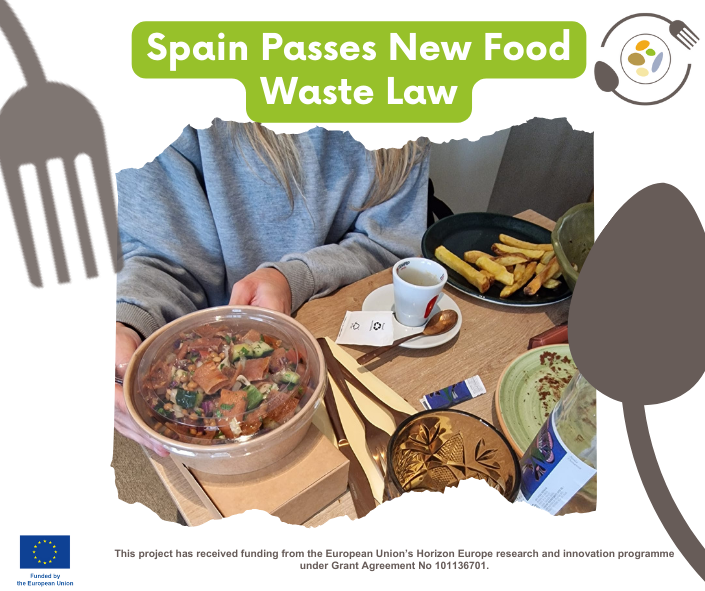April 7, 2025
Spain Passes New Food Waste Law — A Step Forward for EU Targets and BREADCRUMB’s Mission
Spain has approved its first-ever Law on the Prevention of Food Loss and Waste (March 2025), introducing wide-ranging measures that aim to tackle waste across the entire food chain.
Key measures include:
- Mandatory food donations by large retailers to social organisations.
- Food waste prevention plans required across the supply chain.
- Sale of “imperfect” or misshapen food encouraged in supermarkets.
- Restaurants must offer takeaway containers for leftovers, free of charge.
- Smarter use of best-before dates to reduce early disposal.
- Sanctions of up to €100,000 for serious non-compliance.
This national law supports the European Union’s commitment to reducing food waste. In February 2025, the Council of the EU and European Parliament reached a provisional agreement on binding food waste reduction targets:
- 10% reduction in processing and manufacturing.
- 30% per capita reduction in retail, food services, and households by 2030 (compared to 2020).
These targets form part of the Farm to Fork Strategy, a key element of the European Green Deal ( Learn more – European Commission and Food waste – Consilium)
As Nicolás Juste from Anecoop, BREADCRUMB partner in Spain, explains, the law also encourages a cultural and behavioural shift around food quality and value:
“The new legislation includes a set of good practice measures. Some of them aim to encourage the sale of so-called ‘ugly’ or imperfect products — like fruits and vegetables that look different but have the same taste and quality as the rest of the harvest. Others promote the consumption of seasonal and locally sourced products to reduce waste. Foods from faraway regions lose shelf life in transport, and if discarded, the loss is even greater due to the resources needed for distribution.”
The BREADCRUMB project is fully aligned with these goals, working across Europe to map food marketing standards, assess their impact on waste, and support sustainable, evidence-based policymaking. Spain’s new law provides a valuable example of how legal frameworks can help drive change on the ground.


